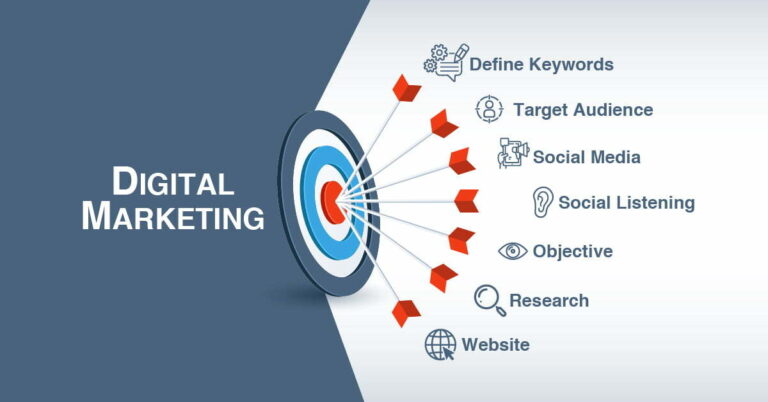As the newest generation of consumers, Gen Z is quickly emerging as a powerful force in the marketplace. Traditional marketing strategies that were effective for Millennials and earlier generations often miss the mark with Gen Z.
This generation stands out due to its unique values, media preferences, and purchasing behaviors.
To win the attention and loyalty of Gen Z, marketers must evolve and embrace new approaches.
What are these distinct traits of Gen Z, and what changes in your traditional strategy are needed to connect with this influential demographic? Let’s explore
Understanding Gen Z:
Gen Z is the first generation to have digital devices as an integral part of their lives from the beginning, as early as their Annaprashan ceremony. As true digital natives, they’ve never known a world without the internet. For them, instant access to information isn’t an option—it’s a fundamental way of life. Communication for Gen Z isn’t about in-person interactions; it’s about messaging and connecting through social media platforms. It is no wonder that they come with a totally different set of expectations and behaviors than their predecessors such as:
- Digital Savviness: Gen Z is highly skilled with technology and expects brands to match their proficiency. They gravitate toward digital-first experiences and prefer to engage with brands online.
- Short Attention Spans: With constant access to unlimited information, attention spans have significantly shortened for everyone, but Gen Z is particularly impacted. Having been conditioned from an early age to focus only on the most engaging content, they’re especially difficult to capture. Brands now face the challenge of seizing their attention in just milliseconds in an increasingly crowded digital space.
- Value-Driven Consumption: Social and environmental issues are crucial to Gen Z, and they tend to support brands that share their values and are transparent about their practices.
- Personalization: They expect personalized experiences and are willing to share data with brands that use it responsibly to enhance their customer experience.
- Visual and Interactive Content: Gen Z, a generation constantly pressed for time and bombarded with information, gravitates toward content that is quick to consume and engaging. Visual content has become a clear favorite because it transcends language barriers, making it more universally accessible. Being highly opinionated, Gen Z loves to be heard and involved, which is why interactive content resonates so strongly with them—it offers a chance to engage directly and make their voices heard.
The Digital Influence of Gen Z
Tech-savvy and adept at navigating the internet, Gen Z has naturally become the go-to resource for research and information gathering in households. This has inadvertently positioned them as key players in the decision-making process for various purchases. Whether it’s everyday household items or major tech investments, Gen Z’s influence is undeniable, highlighting the critical need for marketers to focus on this powerful demographic.
Still doubtful here are some stats to drive the fact home. According to a study by NRF, 87% of parents say their Gen Z children influence family spending, especially in categories like technology and household goods. Apple and Amazon are two brands who have already taken the lead in engaging and connecting with this dynamic generation to reach out to the broader family unit.
Strategies for Marketing to Gen Z:
1. Embrace Social Media Platforms: This is a no-brainer. If you want to connect with or capture the attention of a generation that prefers digital communication over in-person interactions, social media is a must. However, a word of caution: stay attuned to which platforms Gen Z is gravitating toward and which ones are being left behind by the previous generations. Gen Z uses social media differently—they see it as a space to connect, share, seek information, find entertainment, and engage in conversations. These platforms are not just for socializing but have become essential sources of information and entertainment for this generation.
Action items for a brand
- Creating Authentic Content: Gen Z values authenticity, favoring real people and genuine stories over polished staged content. For brands, showcasing this authenticity is essential to capturing Gen Z’s interest and should be a top marketing priority.
- Leveraging Influencers: Collaborate with influencers who genuinely resonate with Gen Z. Close-knit communities and high engagement rates make micro-influencers a safe bet.
Engage in Trends: Staying current with social media trends is vital for brands aiming to connect with Gen Z. Participating in challenges or viral content formats that align with your brand and add value to your audience’s life is a smart strategy. A recent example of a trend that a brand could ride on is the ’75-Hard Day’ challenge on Instagram, designed to promote a healthy and active lifestyle.
2. Prioritize Mobile Optimization: Given their mobile-first nature, all marketing efforts should be optimized for mobile devices. This includes having a responsive website, mobile-friendly email campaigns, and apps that offer seamless user experiences. For example, Starbucks’ mobile app provides a smooth and rewarding user experience, allowing customers to order ahead, pay, and earn rewards easily.
3. Focus on Video Content: Video content reigns supreme with Gen Z. Brands should invest in creating short, engaging videos that can be shared across various platforms. Consider the following approaches:
- Short-Form Videos: Platforms like TikTok and Instagram Reels are perfect for short, catchy videos that can quickly capture attention.
- Behind-the-scenes Content: Showcasing behind-the-scenes footage can humanize the brand and build a deeper connection with the audience.
- User-Generated Content: Encourage users to create content related to your brand. This not only increases engagement but also provides authentic content that resonates with Gen Z. For example, GoPro often features videos shot by its users, showcasing real-life adventures and experiences.
4. Align with Values and Causes: Gen Z is highly conscientious and prefers brands that stand for something. They are more likely to support companies that align with their values. Brands should:
- Champion Social Causes: Be vocal about social issues and contribute to causes that matter to Gen Z. For instance, Patagonia is known for its strong stance on environmental issues, which resonates well with Gen Z.
- Show Transparency: Be transparent about business practices, from sourcing materials to labor practices. Brands like Everlane have built their entire business model around transparency, sharing detailed information about their factories and pricing.
5. Offer Personalized Experiences: Personalization is key to capturing Gen Z’s attention. Use data responsibly to create tailored experiences that make each customer feel unique. Implement strategies like:
- Personalized Recommendations: Use algorithms to recommend products based on individual browsing and purchasing history.
- Interactive Quizzes: Offer quizzes that provide personalized product recommendations. Beauty brand Sephora excels at this with their interactive tools that help users find products suited to their needs.
6. Leverage Interactive Content: Interactive content not only captures attention but also engages Gen Z in a meaningful way. Consider incorporating:
- Polls and Quizzes: Integrate polls and quizzes into your social media strategy to encourage engagement and gather insights.
- Augmented Reality (AR): Use AR to create immersive experiences. For example, IKEA’s AR app allows users to visualize how furniture will look in their home, enhancing the shopping experience.
7. Create Community and Encourage Participation: Gen Z values community and participation. Brands can foster a sense of belonging by:
- Building Online Communities: Create platforms where users can interact with each other and the brand. For example, Nike’s Run Club app is a great example, offering a community for runners to connect, share their progress, and participate in challenges. By providing a platform for like-minded individuals to connect and engage, brands can foster a sense of community and belonging among Gen Z consumers.
- Encouraging Feedback: Actively seek and act on feedback from Gen Z consumers. Show that their opinions are valued and can influence the brand’s direction.
Conclusion:
Marketing to Gen Z requires a deep understanding of their unique characteristics and preferences. By embracing social media, prioritizing mobile optimization, focusing on video and interactive content, aligning with their values, offering personalized experiences, and fostering community, brands can effectively engage and build lasting relationships with this influential generation. As Gen Z continues to grow in purchasing power, staying attuned to their evolving preferences will be crucial for any brand aiming to remain relevant in the digital age




